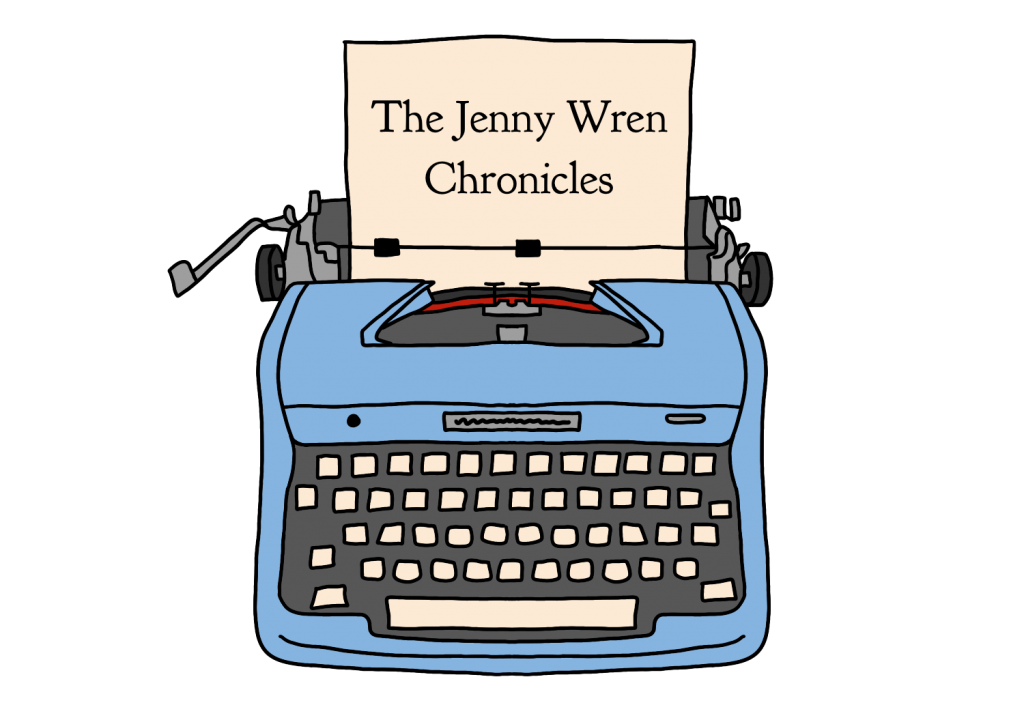Microfiction Vol. 1
If you’re one of my dozens of newsletter recipients, you’ll know that I include a piece of microfiction in each newsletter. Here are the pieces I wrote over the first year of my newsletter.
Iss. 1
He didn’t think she cared. Whenever he sent her a message, he received no reply. Sometimes three little dots appeared for a while, but then nothing. It was obvious that she was done. He needed to move on. He walked home, holding back the tears, feeling sorry for himself but determined not to wallow. As he neared home, he looked up. There she was. On his front steps. Bag in hand. “I never heard from you,” she said. His eyes widened. He looked at his phone again. Tears began streaming down his face. He’d been texting the wrong number.
Iss. 2
Her mother left her with only a locked suitcase with no key. It was one of those old, hard-sided mid-century ones that predated wheeled, rectangular bags or luggage carts. Sufficient, but easy to carry. The case would be easy to break into; it would just take a bobby pin. But she got more comfort from imagining what was inside—not knowing exactly what her mother would have left her—than from opening it, knowing for sure, and potentially being disappointed. It kept her mother’s love for her alive in her heart, just a little bit longer. But, this morning, a letter arrived, unmarked and anonymous. All it said was, “Open it.” She glanced over at the suitcase, newly determined.
Iss. 3
She kept a photo of every friend she ever had. Some friends wafted in and out of her life like flowers on the wind. Others were fixtures, never wavering in their presence. Each photo was kept in a book, in chronological order, marked with the day they became her friend. Pages for long-term friends sometimes had updated photos tucked between the leaves, displaying the evolution of the human experience. The passage of time was reflected in good and bad haircuts, scars, facial hair, wrinkles, and changing expressions. Someday, she’d tell these friends what they mean to her. Someday, she’d get the courage to introduce herself.
Iss. 4
Clink, clink, clink. She tapped her spoon on her glass, standing up and getting the attention of everyone at the table. The room fell silent. She looked around nervously. She cleared her throat. He looked at her expectantly. He knew what was coming, but she didn’t know that he knew. He tried to will her some courage through the look in his eyes. She looked at him, and he saw her relax, slightly. Gain confidence. She lifted her chin and took a deep breath, letting it out slowly. And then she began. “I’ve been chosen for the next mission to space. We leave tomorrow. This party serves as my farewell to you.”
Iss. 5
Violet pushed a seed down into the rich fertile soil of her front yard. She had found the seed sitting on her front stoop when she left home that day. So, she buried it and poured a little water on top, then left for her day’s succession of busy nothings. She promptly forgot about it. It was dark when she returned home, and then it snowed the next day, burying her yard, hiding her seed. Time passed. The snow remained, and acquired new layer upon new layer. Violet ignored her yard for a few months, except to bury it in more snow that she shoveled from her walk. In the spring, the sun returned, beginning the yearly melt.
While rushing out of the house to catch a train, Violet eventually noticed something peeking out of the snow, right where she’d buried the seed. It was green and pointy. But she had no memory of planting the seed, and she was in a hurry. The green pointy bits were forgotten. But when she returned home a few days later, the snow was all gone, and her yard contained a single violet bloom to welcome her home.
Iss. 6
No one understood Janie’s single-minded determination to become an astronaut. To go to space. She’d worked toward being accepted at the Astronaut Academy since she was five, learning everything she could about the stars, the planets, zero-G effects on the body, and even jet propulsion. She spent every clear night outside, gazing toward one constellation, one star, sometimes tapping into telescopes in the Southern Hemisphere, depending on the time of year.
Now, at age 32, all her hard work has paid off. All her time, studying, and training at the Academy.
Now. Now, as the world drops away and she heads into space: “I heard you,” she whispers. “And I’m coming.”
Iss. 7
Mabel was trapped in a box. Day in and day out, she spent her working hours in that stale, grey, square box. “Too many barriers between me and sunlight,” she thought. “I must punch through them.”
So she punched. And she punched. And, finally—fists bloodied from the effort—she emerged, victorious, free, reborn, arms outstretched into the light of day. “At last!” Mabel expressed, more as a feeling than a thought.
Then she plummeted out the third story window and landed in a dumpster, atop bags of shredded documents. But Mabel was happy: “I can see the sky!”
Iss. 8
Sherman climbed the exactly 200 steps to get to the top of the lighthouse. He opened the protective enclosure, lit the beacon, and closed it again. Then he trudged back down the exactly 200 steps to get to the bottom, exited the lighthouse, and sat on the bench, looking out to sea, to the west, to enjoy the sunset. He could see several ships sailing to and fro along the trade route, but he also spied one heading in his direction, directly to the lighthouse and its rocky shoal.
Its sails kept getting bigger and bigger, the closer it came. Sherman could almost make out what was on its flag at the top of the mast. He pulled out his binoculars, but by that point the light was fading too fast. He swore he saw a Jolly Roger, though. One glance up to the beacon told him that it was still lit, the reflector still turning. And yet the ship kept coming. Closer and closer. Just as Sherman thought it would run aground, it turned translucent and just kept coming, washing over Sherman like a ghost. He shivered and shut his eyes, and, when he opened them again, there was a gold coin at his feet, a man’s laughter ringing in his ears.
Iss. 9
The raven sat watching over the little girl, who sat on the bench by herself, waiting for the bus. Several boys, slightly taller than the girl and with bags slung across their backs, approached the bus stop. They were loud, yelling, and carrying on while pushing each other around. One boy spied the little girl—his eyes brightened, and he gestured to his mates, as if to say, “Hey, watch this!”
The boy walked up to the little girl. “Hi, Meg,” he said. Meg looked at him, warily. He continued, whispering this time: “Pretend I said something funny and laugh.” Meg looked confused. “Please?” he asked, quietly. She tilted her head to one side, and then laughed that little belly laugh that girls sometimes do. The boy looked pleased. He returned to his mates, beaming with pride.
The raven was disappointed. He thought that today would be a day he could finally defend dear Meg, proving himself worthy of her.
Iss. 10
Plunk. Plock. Slap. June kept bouncing the racquetball against the ground and the wall, and it bounced back to her each time.
Plunk. Plock. Slap. She was working something out in her head, and this repetitive movement and sound helped her think.
Plunk. Plock. Slap. Right in her hand it landed, each time. She was getting good at this.
Plunk. Plock. Slap. It made satisfying sounds. It was rhythmic. Calming. Soothing.
Plunk. Plock. Slap.
Plunk. Plock. Slap. She decided.
Plunk. Plock. Slap.
Plunk. Plock. Slip. She missed. The ball barely grazed her fingers.
Slap. June turned around.
Rocky stood there, racquetball in his raised hand. Questioning look on his face.
June smiled and nodded. Rocky ran to her, picked her up, swung her around, racquetball still in his hand.
Iss. 11
There always seemed to be light shining on Shay. She reflected and radiated joy wherever she went, and uplifted everyone who came into contact with her. Her mood was infectious.
But then he entered her life. She looked up to him. Was devoted. At first, Shay continued to shine, with a new quality on top of the old. But soon her shine dimmed. Her glimmer dulled. Until there were only small rays left, ones that shone only in private. Those around her noticed the change, but only Paul said something.
“I’m concerned about you, Shay. Your light is gone.” Deep down, she already knew, but she was afraid. She forgot how to be alone.
But, one by one, Paul and so many others others reached out a hand. And, when she was ready, she grasped them, one by one, pulling herself back into the light, away from him, away from darkness. And, once again, she shone, first dimly like the morning light, but then brighter and with more color and contrast than ever before, since now that she knew darkness, she knew the gift that was light.
Iss. 12
The boy always sat at the bus stop alone, quietly, not smiling, even when the weather was nice. The girl wanted to talk to him, but she was shy, Still, every day, she sat next to him on the bench, hoping he’d speak to her, or laugh at the antics of the other waiting children, or even just cough. But, no, he just sat there, and then would quietly stand up when the bus arrived, getting on the bus after everyone else, sitting in the right-hand front seat, alone.
This time, when the bus arrived, the girl stood up when the boy stood up, but she didn’t make a move to get on the bus. This time she waited with the boy while all the other children got on and found their seats. The boy looked at her curiously, but said nothing, and then got on the bus himself, sitting in his usual spot. The girl followed, and asked if she could sit with him. A look of surprise briefly flashed on his face, but then he nodded and quickly looked away, out the window. The girl could see his face reflected in the glass, his mouth growing into a small smile.
Click here if you want to subscribe to future newsletter issues. But I’ll try to remember to put up a post each year, collecting together each volume’s microfiction.


